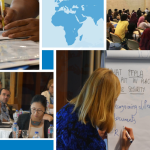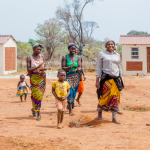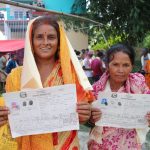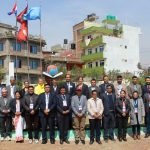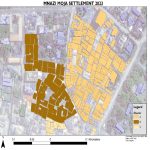Somalia
GLTN has supported Partners in Somalia in strengthening their land and tenure security interventions using GLTN tools.
The Norwegian Refugee Council (NRC) worked towards improvement of gender and youth responsiveness of their shelter and land interventions. In 2017, The NRC implemented the Gender Evaluation Criteria and the Youth and Land Responsiveness Criteria tools in their interventions under Shelter and Information Counselling and Legal Assistance (ICLA) projects in three cities. Through this experience, NRC provided feedback and recommendations to GLTN on how to improve the tools for conflict contexts and mainstreamed gender and youth responsive features in their upcoming programming. The intervention also enhanced the capacity of NRC’s field staff to apply key gender and youth related concepts in different aspects of their work.
GLTN worked with the UN Department of Political Affairs and the UN-Habitat Somalia office to undertake a root cause analysis of the land-related dimensions of violent conflict in the southern state of Jubaland.
The conflict analysis was carried out using the ‘Root Cause Analysis of Land and Conflict for Peacebuilding’ tool developed by GLTN. The tool is an interdisciplinary framework aiming at building a common understanding and thinking strategically about how to address land conflicts. Programming often addresses symptoms or triggers of conflicts, while the focus should be on targeting root causes and their proximate factors. The root cause analysis tool developed by GLTN makes it possible to ask the right questions for programming in a country or an area where land is part of the conflict and to distinguish root causes, proximate factors and triggers.
The study assessed the Jubaland land governance systems, investigated land tenure, land use patterns and land conflict and documented patterns of land disputes in Jubaland and Kismayo in particular. The study identified eleven root causes of conflicts, categorized in environmental (scarce natural resources including land and water and natural resources exploitation), socio-economic (population pressure, poverty, criminality and terrorism, and unregulated and exploitative investment) and governance related causes (weak governance, weak land administration, politics of exclusion, capture of state instruments and chaotic urbanization). Specific recommendations are provided on how to address each root cause of conflict and more detailed explanation is given on land-related causes of conflict.
The study findings are expected to guide the work of the UN in peace building and land conflicts management and to inform land policy processes and other land governance interventions in Jubaland and Somalia as a whole.
Key Documents:


